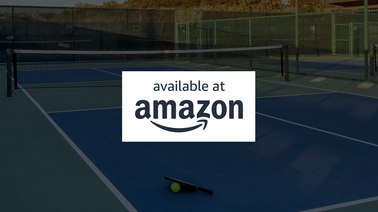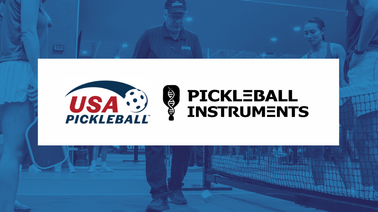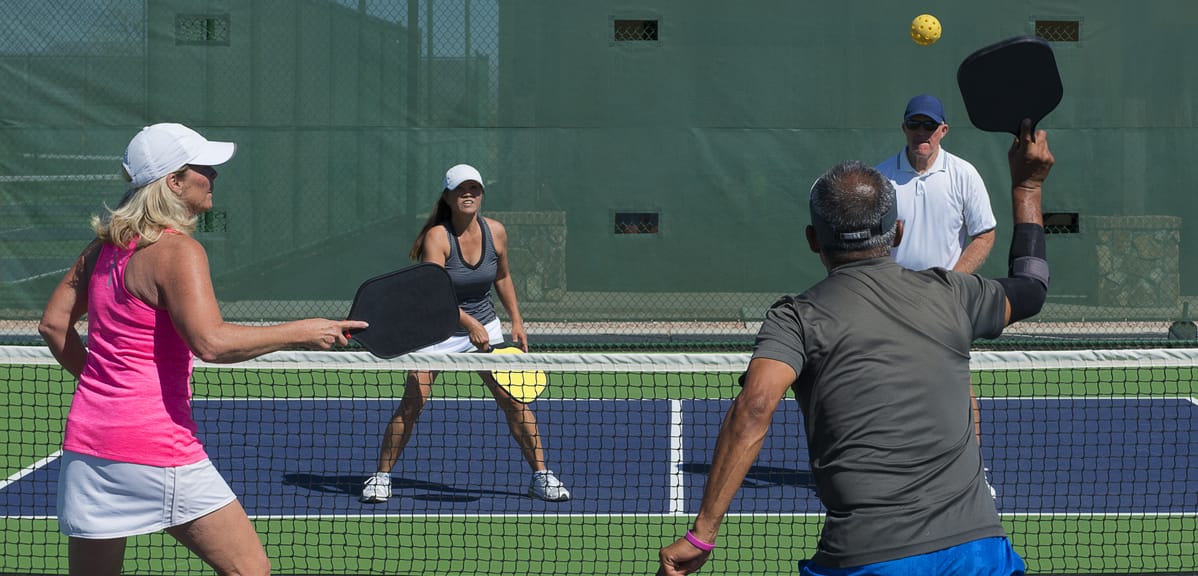
Playing More Pickleball Actually Improves Your Mental Health, New Study Finds
Let’s just say your regular Tuesday-Thursday-Saturday routine might be doing more for your mood than your morning coffee.
If you’ve ever walked off the court grinning ear to ear and thought, “Man, I needed that,” you’re not imagining it. Science just caught up to what every die-hard player already knows: the more you play pickleball, the better you feel — not just physically, but mentally too.
That’s not just some feel-good mantra slapped on a t-shirt. A new study out of Saint Louis University, published in Frontiers in Sports Science, actually measured the connection between pickleball participation and mental wellbeing.
The results? Let’s just say your regular Tuesday-Thursday-Saturday routine might be doing more for your mood than your morning coffee.
The Study That Proved It
Researchers surveyed over 1,600 pickleball players across the U.S., ages 18 to 89 — though most hovered around 63.
They weren’t just looking for casual “yeah, I feel good” answers. Participants filled out the WHO-5 Wellbeing Index, a legit global standard for measuring mental health, alongside detailed questions about how often and how long they played pickleball each week.
Here’s the standout:
- Players who hit the court three or more times per week scored significantly higher on mental wellbeing than those who played once or twice.
- Same thing for session length — playing longer than two hours per session was tied to noticeably higher wellbeing scores.
As the study stated:
Our findings indicate that playing pickleball more frequently and for longer durations is significantly associated with higher levels of mental wellbeing, even after accounting for key covariates such as injury history, age, sex and engagement in other sports.
Basically, both how often you play and how long you play matter. There’s a sweet spot somewhere between “casual weekend dinker” and “the person who brings their own net everywhere.”
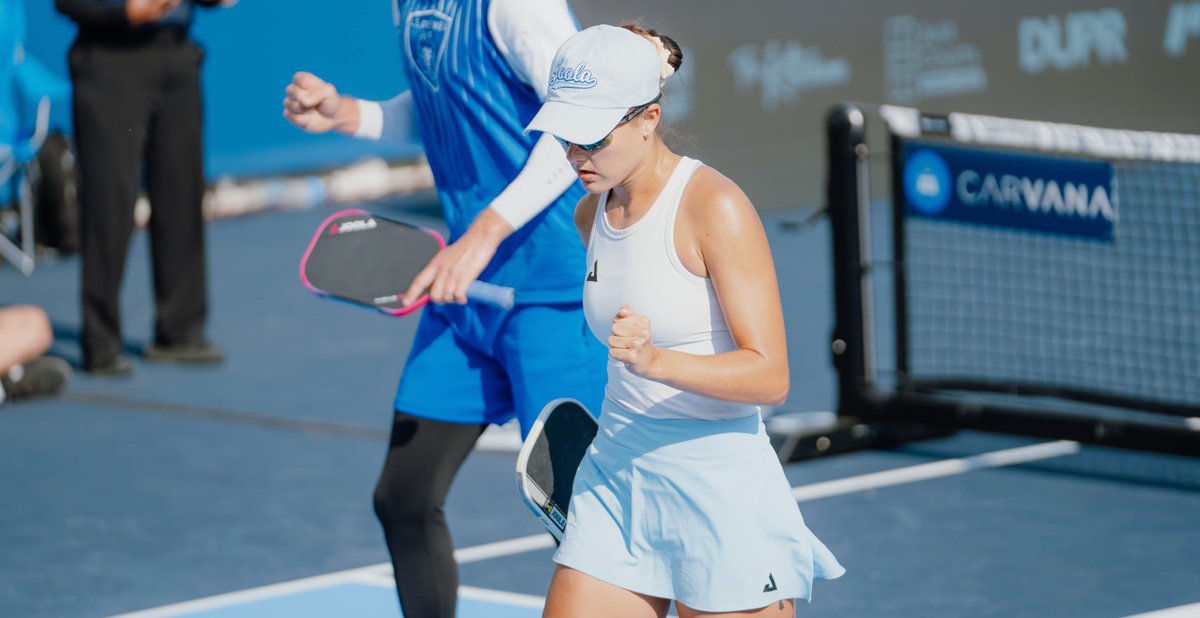
A Dose–Response Relationship (a.k.a. More Play, More Joy)
Scientists have a fancy term for this: a dose–response relationship. In simple terms, the more of something you do (your “dose”), the more of an effect you see (your “response”).
Usually, you hear that in medicine — take more of a drug, get a stronger effect.
But here, the “drug” is pickleball.
And the “response”? Feeling happier, calmer, and more fulfilled.
It’s kind of poetic, honestly. A sport that started in a backyard 50 years ago is now being linked to measurable improvements in mental health — especially in older adults.
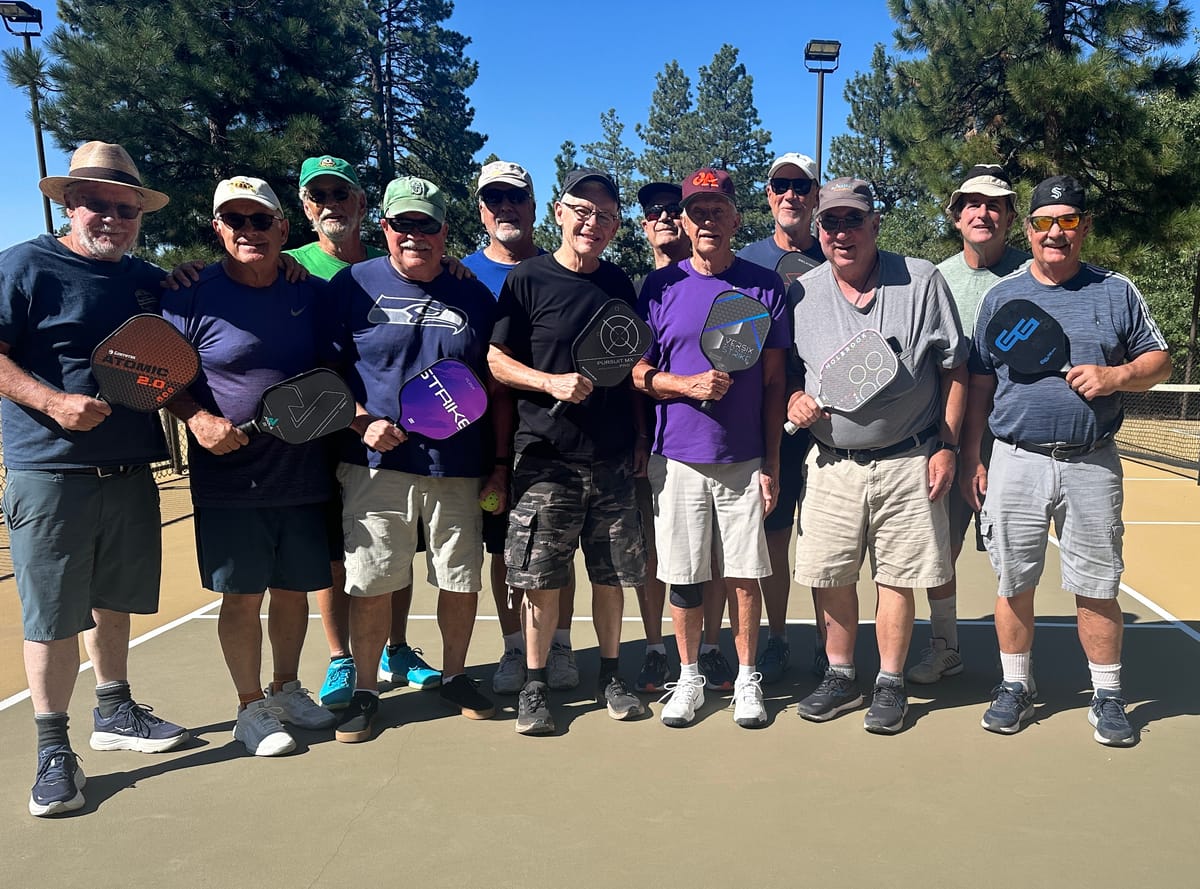
The study found that players between 63 and 77 years old saw the strongest mental health boost. That’s huge when you consider how many people in that age bracket are searching for ways to stay active, social, and, well… connected.
Why Pickleball Works (Beyond Just Breaking a Sweat)
Here’s where things get interesting. Physical activity alone improves mood — we know that.
But pickleball brings a cocktail of benefits that’s rare to find in one sport.
It’s social, it’s accessible, it’s as competitive as you want it to be, and it doesn’t beat up your body the way other racket sports can.
You’ve got the endorphins from exercise, the satisfaction of skill progression, the camaraderie of shared obsession, and that dopamine hit every time you hit a perfect third shot drop.
Even if you didn’t burn a ton of calories, you still leave the court lighter.
The researchers think that’s part of the magic — the combination of physical movement + social connection.
Those two ingredients are consistently linked to better mental wellbeing, especially in older adults who often struggle with isolation. And pickleball checks both boxes without requiring a gym membership or a marathon mindset.
The Catch: Injuries Can Kill the Buzz
There’s one caveat. The same study found that players with a recent injury reported significantly lower mental wellbeing.
Makes sense, right? You can’t reap the joy of playing if you’re sidelined with a strained calf or a bum shoulder.
Injuries don’t just hurt physically — they mess with routines, limit social time, and chip away at the sense of identity many players build around the sport. For a lot of us, those early-morning rec games or open-play nights aren’t just exercise; they’re ritual. Take that away, and the emotional toll adds up fast.
The researchers actually called for more injury-prevention education in pickleball — especially for older players who want to keep playing consistently.
Warm-ups, recovery days, proper footwear… you’ve heard it before, but now it’s backed by data showing it literally affects your happiness.
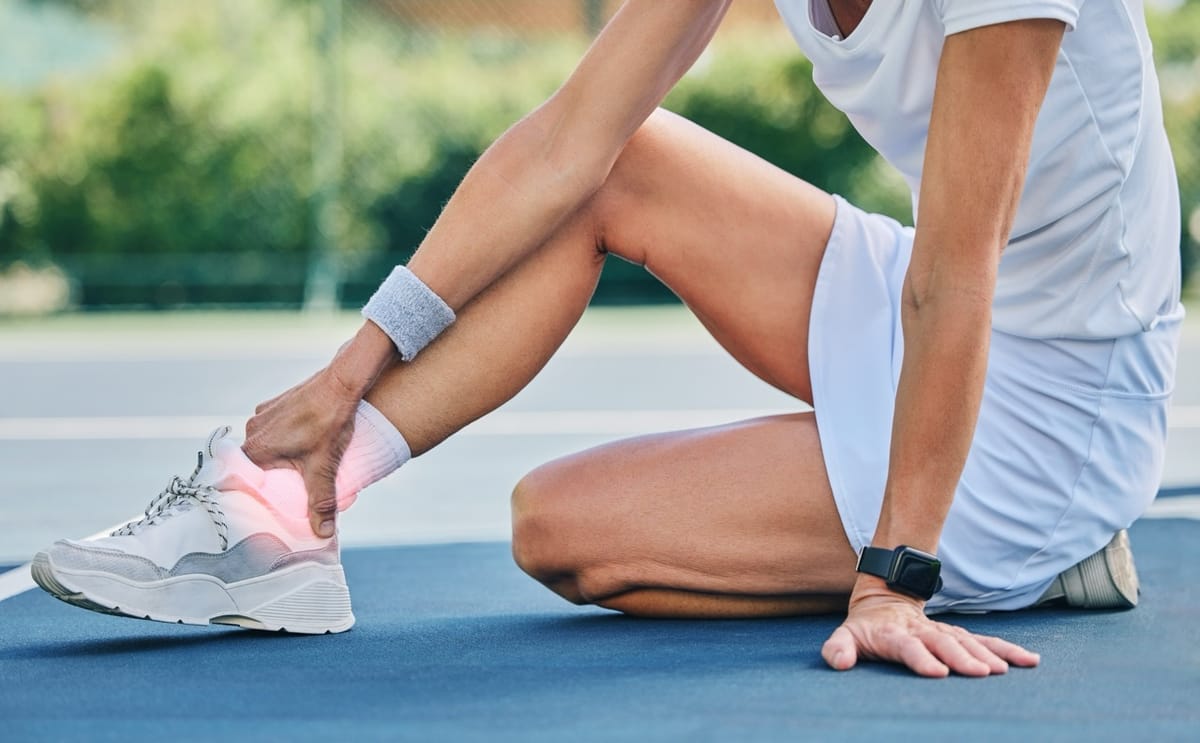
Age, Gender, and the Great Equalizer
Interestingly, the study found no meaningful difference between men and women when it came to mental health benefits.
Play frequency and session length boosted everyone’s mood the same way.
So whether you’re a 70-year-old ex-tennis player or a 45-year-old newbie who just learned what a “kitchen violation” is, the mental perks are universal.
Age, on the other hand, told a different story. Wellbeing tended to increase with age among players — peaking around the mid-60s and leveling off in the late 70s.
The takeaway? Staying active and social through pickleball might actually help counteract some of the natural dips in wellbeing that come with aging.
That’s not something you can say for every sport. Not many 70-year-olds are joining weekend basketball leagues, but thousands are picking up paddles every week and calling it the best part of their day.
More Than a Game — A Mental Health Movement
You know what’s wild? When this sport started exploding, everyone talked about growth stats — player counts, court builds, paddle sales.
But maybe the real story isn’t just about how many people are playing. It’s about why they’re playing — and what they’re getting out of it.
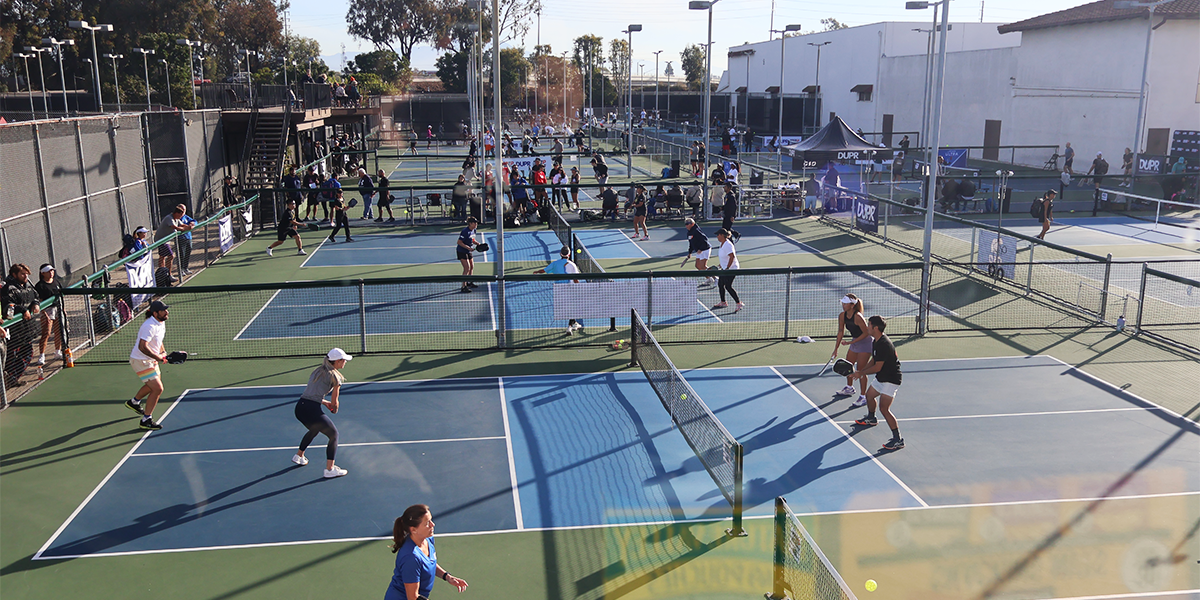
Pickleball’s appeal isn’t just about competition. It’s connection. Purpose. That little spark of joy when you hit a clean winner or laugh through a rally that goes on forever.
Those micro-moments add up. They’re part of what psychologists call “subjective wellbeing” — the combination of feeling good, functioning well, and having a sense of belonging. And pickleball delivers that in spades.
The Takeaway
So, should you start playing more often? Probably.
The study didn’t say you need to play seven days a week to feel the benefits — just that consistent, longer sessions are associated with higher wellbeing.
If you’re playing once or twice a week, maybe add a weekend morning or stay for an extra game or two. Your brain might thank you.
And if you’ve been nursing an injury or sitting out, this could be your sign to rehab properly and get back out there safely. Because clearly, it’s not just your body that misses it.

Love Pickleball? Join 100k+ readers for free weekly tips, news & gear deals.
Subscribe to The DinkGet 15% off pickleball gear at Midwest Racquet Sports






